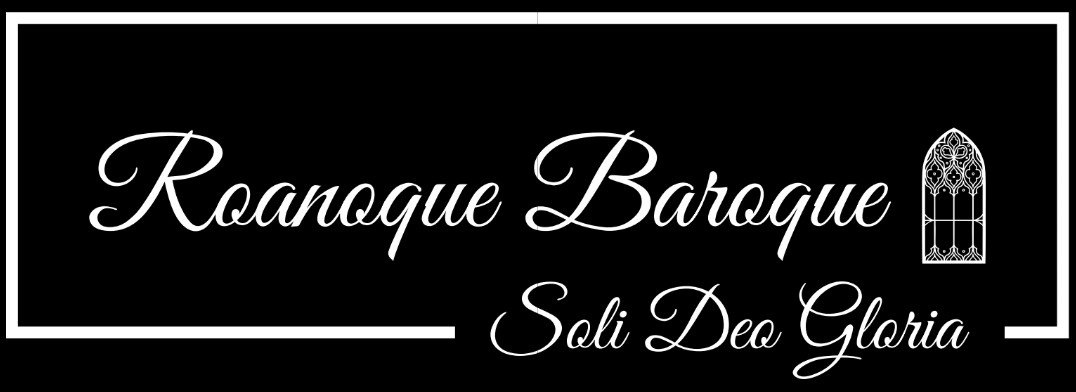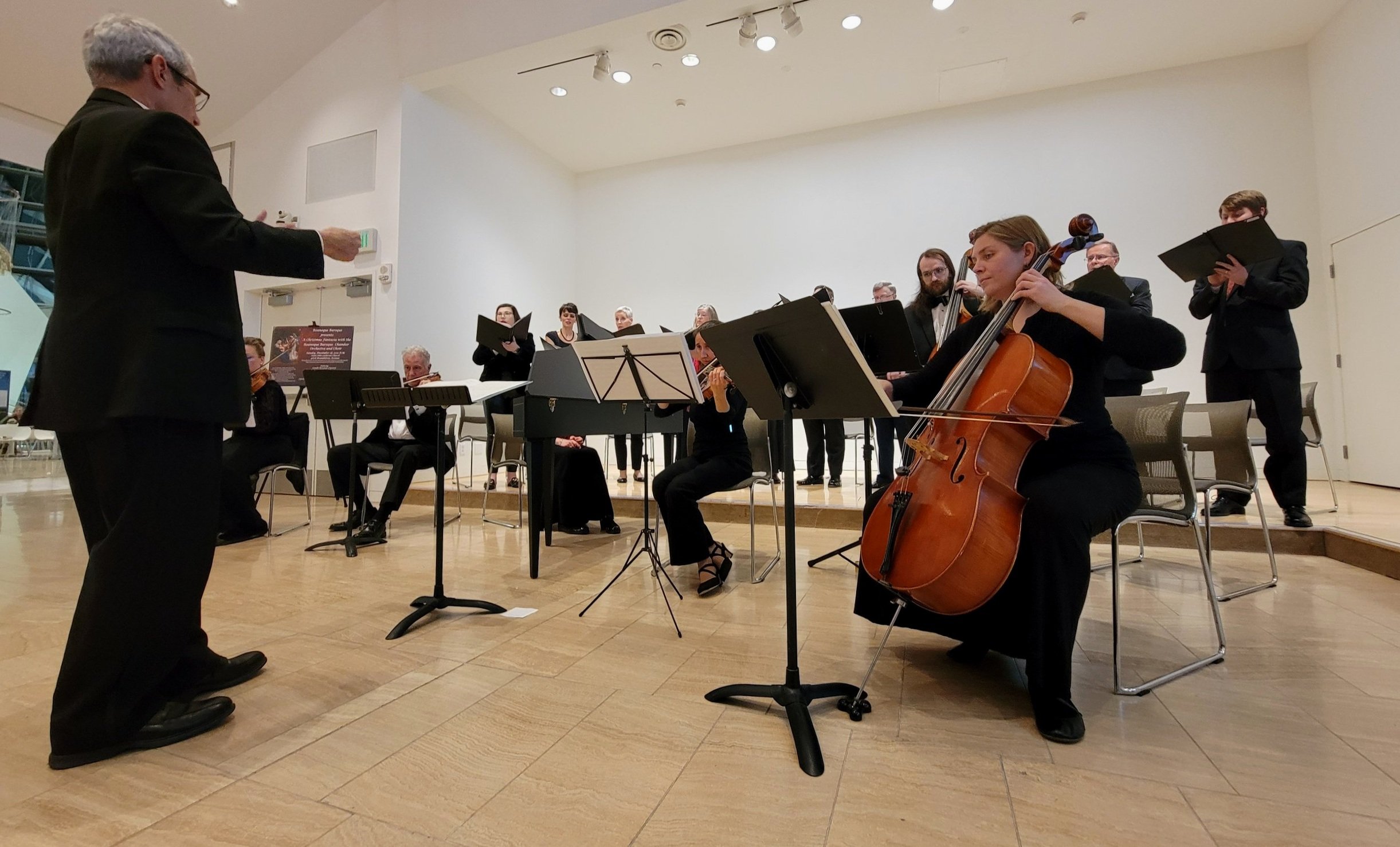A Story of Convergence
ROANOKE :
A lovely city built upon the banks of the Roanoke river officially named and founded in 1884 that features many decorative architectural and natural attractions. The name of the river likely comes from the word “rawrenok,” an Algonquian word for a certain sort of sea shells at times used for currency. At times in the historical record it appears in French spelling variation “Roanoque” as in Edward Isaac’s will from 1759 identifying his land holdings as ” including all the lands lying between Roanoque River and Uraha Swamp” (currently spelled Urahaw). Also the name of the “lost colony” from 300 years earlier in 1585 that was settled near the mouth of the Roanoke/Roanoque river in North Carolina.
BAROQUE :
A lovely period in the history of Western European musical development spanning roughly the late 16th century (c. 1585) to somewhere around 1759. This was around the death of George Frederich Handel, but it influences the world to this day. The word, possibly of Portuguese origin referring to a special pearl (barrocco), as defined by Merriam Webster’s dictionary describes music “that featured many decorative parts and details” and is also at times spelled after the German usage as “Barock.”
This period features some of the best known names in musical history such as Bach, Handel, Pachelbel, Telemann, Rameau, Schütz, and many others whose music is, however, sometimes lost in the 300 or so years since its composition.
CONVERGENCE : what results when things come together
Mixing a little history with origins around 1585, some “American,” “Algonquin,” “French,” and “German” spellings, an historical era and spellings that span until at least 1759 but whose influences are clearly felt through 1884 and even today, some unique sea shells and the odd misshapen Portuguese pearl, and you have Roanoque Baroque, or perhaps Roanoke Barock, but somehow the “que” version rings with a little more elegance. However, the idea for Roanoque Baroque emerged perhaps more from a divergence than a convergence.
The modern city of Roanoke is blessed with many performing arts organizations including a wonderful symphony, an opera company, as well as colleges and universities that have lovely musical offerings. It also is the residence of a renowned children’s chorus, school music programs, churches with rich musical histories, along with a strong “classical” presence on the radio. When considering the programing from these various organizations, it seemed that the rich musical heritage of the Baroque was limited in representation to an occasional performance of Handel’s “Messiah,” an infrequent organ work by Bach on a Sunday morning, a partial offering of choral selection on a concert that would lead more toward modern creations, or perhaps wedding processional. It almost seemed that this music was nearly as lost as that fabled colony on the shores of the Roanoque river in 1585.
The classical radio stations, however, seemed permeated with wonderful sonatas of Corelli, sinfonia of Bach, flute concerti by Telemann, string music of Albinoni, and even early symphonies from the time of Mozart (who after all was born just at the end of that charming Baroque era).
Why this DIVERGENCE? :
If there was a love of Baroque music on the radio, perhaps there was a need to bring this music into live spaces with live musicians in lovely settings along the Roanoque river. Perhaps the musicians of Roanoque were in need of a catalyst to bring this music to life and rediscover these lost pearls. Welcome Roanoque Baroque. The area around the lost colony of 1585 may always remain a mystery, but the music from the era of 1585 and nearby can hopefully be fully heard and appreciated in Roanoke/Roanoque today!



